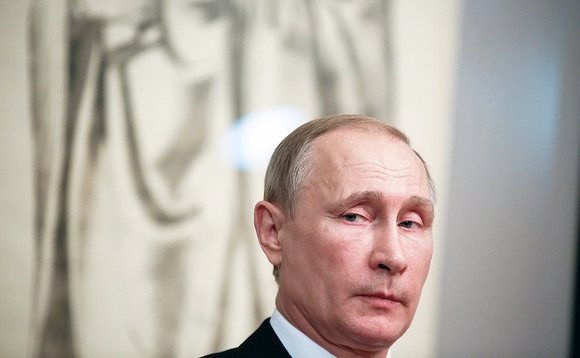
Flight of western capital forces Russian PE to rebalance

Economic sanctions against Russia by the west will enter into their fourth year in early 2017 and the private equity industry in the country continues to suffer as a result. Mikkel Stern-Peltz reports on the new normal in Russian private equity
The sanctions put in place by the EU and US after Russia invaded the Crimean peninsula in Ukraine have led to private equity activity in the country dropping off a cliff, and have dried up investment from the west into the Federation.
With the EU voting in favour of continued sanctions earlier in 2016 and Russia retaining its stance on Crimea, there is no indication of any imminent return to previous western investment levels in the country. The European Bank for Reconstruction and Development (EBRD), a major LP in several Russian private equity funds, decided in 2014 to halt all new investments in the Federation – and while it will continue to manage its existing portfolio – it last committed new capital to a fund with a Russian remit in March 2013.
Similarly, sources in the region told unquote" that, when the Ukraine conflict first began, LPs invested in Russian or Russia-inclusive funds would have side-letters with their GPs that would allow the investors to withdraw their commitments or veto any investments in Russian assets.
More recently, a partner at an adviser specialising in M&A services and fund placement in CEE told unquote" the firm halted its activities in the Russian Federation in 2014, "because of the lack of opportunities in [the firm's] areas of focus, caused by a combination of sanctions and the overall political and economic environment".
The firm's decision is reflected in the fundraising efforts for Russian vehicles. While more than $5bn was raised for Russia-focused funds in 2013, the government-owned Russian Direct Investment Fund (RDIF) accounts for more than 97% of the total, backed mainly by sovereign wealth funds. RDIF remains active in Russia, but requires two dollars of capital from external backers for every dollar it invests, which is currently being supplied by pools of capital in the Middle East and China, among others – though one source tells unquote" many of RDIF's investment relationships are politically motivated.
Aside from state funds, Almaz Capital fell short of the $175m target for its Almaz Capital Russia Fund II at final close in 2013, according to unquote" data, having raised around $100m – most of which came from commitments by EBRD and International Finance Corporation. Finnish GP CapMan's second Russia-focused vehicle launched in July 2012 and held a final close on €99.1m in September 2014, short of its €175m target; while Russia Partners cancelled fundraising efforts for its $750m fourth vehicle not long after they had begun, in early 2014.
"The market has already shrunk; volume is quite small compared to previous years, but it still operates. Players in the Russian market are learning how to operate in this difficult environment" – Konstantin Kroll, Orrick
It is understood that while some funds are still sitting on undeployed cash, it is being used for little beyond supporting existing portfolios, with no new investments being made by funds backed by western LPs. However, some funds are still active in the local private equity market in a non-investing capacity, as a way of keeping a finger on the pulse of market movements.
"The number of teams we've come across raising investment funds for Russia and the Commonwealth of Independent States has been limited," says Eamon Devlin, managing partner of law firm and fund formation specialist MJ Hudson. "From what I've seen, the current market is poor for Russia-based groups looking to raise money via international fund structures".
Devlin says the amount of money invested in non-traditional markets has decreased in the past year and that his firm has only reviewed two funds for clients focused in Russia over the past three years. "Generally for CEE and CIS funds, concerns about Russia or Putin and how they may impact the surrounding countries has created an environment less conducive to investing. Russia is a less attractive market than two years ago," he says.
Do svidaniya, deals
As with fundraising, the effect on deal activity has been stark, with unquote" data showing a huge dip in buyouts, growth capital and venture deals since sanctions were imposed, from a 2012-high of 78 deals and 69 in 2013 to fewer than 10 deals in 2016 so far.
Data from unquote" sister publication Mergermarket also shows a drop in the volume of mergers and acquisitions (both private equity and non-PE transactions) by nearly half since 2012, from 236 to 128 deals so far this year. It also shows total deal value in 2016 has dropped to just over 20% of the €85bn's worth of deals made in 2012.
"The market has already shrunk, volume is quite small compared to previous years, but it still operates. Players in the Russian market are learning how to operate in this difficult environment," says Konstantin Kroll, a partner in the Moscow office of law firm Orrick.
According to Kroll, the overall political instability adds to the frustrations, as many people are not willing to proceed with investments or projects in the country. "In the past year I've worked on many deals that have collapsed at various stages, and while deals collapsing has happened in the past, it has not been as often as recently," he says, adding that he is seeing an increase in deals falling through as late as the day before signing. Similarly, the new reality of the Russian market has also impacted documentation: "Every deal is bespoke now. There is no standard deal model, everything is done case-by-case due to the apprehensions over the current risk environment."
By themselves, the sanctions have not necessarily affected the majority of Russian SMEs negatively, as only companies with import or export exposure would take a direct hit to revenues. However, the formal sanctions have created a de facto regime of informal sanctions on Russian businesses and investments.
"The real problem is not the formal sanctions, but informal sanctions; that is to say, international banks no longer lend into Russia and do not finance Russian projects, because they have no appetite for Russian risk anymore. There are, of course, exceptions, but they are few and far between."
These "informal sanctions" have effectively led to a credit crunch in the Russian Federation where Russian investors and companies have very little access to cheap funding from the west and capital markets in Russia are unable to support the demand. "It has become a huge problem. Russian banks continue to lend, but those banks are also short of financing because they can't raise capital from the west and the Russian central bank does not have enough money to bridge the gap, which means rates are very high."
Eastern promise
While western capital has dried up, it has been compensated to a degree by investments from the Middle East and China, as well as Russian capital investing domestically as foreign investment opportunities for wealthy Russians are limited by sanctions.
"The trend over the past two years has been the gradual shift away from investments made by westerners – simply because no money has been incoming from the west – to Russian, south-east Asian and Chinese capital," says Kudrat Nurmatov, partner in the corporate finance team of Baker Tilly Russia, who says Russian investors facing sanctions on international investments have focused their new commitments in Russia. "The number of investments from western countries is very low. There are still a few western companies and funds investing in Russia, but the vast majority of those companies are Russian money investing in Russia from offshore structures," he says.
According to Nurmatov, there is increased motivation for Chinese investors in Russia because the Russian government directly and indirectly supports it, for geopolitical and economic reasons. "However, it is likely that the net flow of capital after sanctions has been negative, though there is also very low demand for capital as dealflow has dropped dramatically," says Nurmatov. "The net shortage of funds is not felt as such because the economy is in a condition where it is not looking for capital."
For investors with the opportunity to get money into Russia, the current market could make this a good time to invest, given the election upset that will see Donald Trump become US president in January. If his attitude towards Russia and Putin mirrors the image set out in the media and his campaign, the Russian economy could, over the course of a few years, rebound and return to the levels of growth it experienced before the sanctions or global economic crisis.
"Because the economy has dipped, valuations are going down as well, and that could make the Russian market attractive," Nurmatov says. "If you have cash, especially in currencies other than roubles, and can find a company willing to raise new equity, the current situation can be right. The devaluation of the rouble and low company valuations should more than make up for the volatility."
Latest News
Stonehage Fleming raises USD 130m for largest fund to date, eyes 2024 programme
Sponsor acquired the public software group in July 2017 via the same-year vintage Partners Group Global Value 2017
Stonehage Fleming raises USD 130m for largest fund to date, eyes 2024 programme
Czech Republic-headquartered family office is targeting DACH and CEE region deals
Stonehage Fleming raises USD 130m for largest fund to date, eyes 2024 programme
Ex-Rocket Internet leader Bettina Curtze joins Swiss VC firm as partner and CFO
Stonehage Fleming raises USD 130m for largest fund to date, eyes 2024 programme
Estonia-registered VC could bolster LP base with fresh capital from funds-of-funds or pension funds









